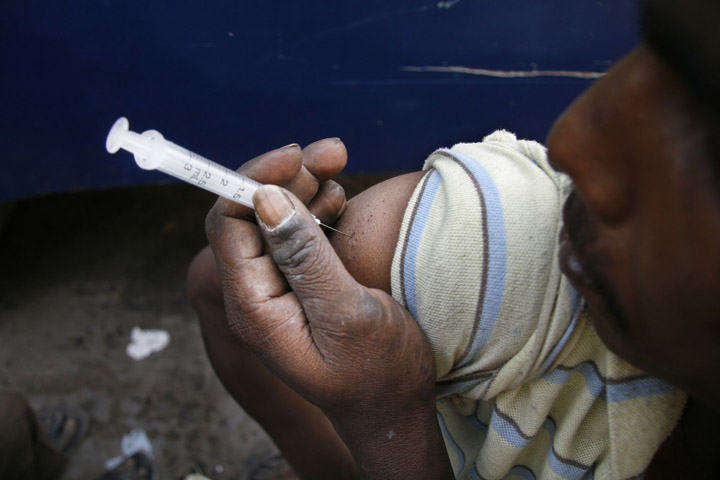HIV in Asia and the Pacific: Getting to Zero, launched at the 2011 International Congress on AIDS in Asia and the Pacific (ICAAP), found that more people than before had access to HIV services, but most countries in the region were still a long way from achieving universal access to HIV prevention, treatment, care and support.
"Some countries - including Thailand, Cambodia, India, Myanmar - reacted very quickly and put in place programmes for specific populations at high risk of HIV, which led to behaviour change," said Beth Mange-Watts, at the UNAIDS Thailand office.
According to the report, wider access to services that prevent new HIV infections among children had led to a 15 percent decrease in new HIV infections among children in the region since 2006; Malaysia and Thailand are on track to eliminate new HIV infections among children.
However, there are still nearly two new HIV infections for every person who starts treatment.
"In some countries - more in specific areas and populations within countries rather than whole countries - the programming has not been focused enough... In the Philippines, for example, there has been a rise in HIV among drug users, while in cities across Asia there has been a rise in HIV prevalence among MSM [men who sex with men]," said Mange-Watts.
While an estimated 740,000 people were accessing ARVs at the end of 2009 - three times the number in 2006 - this represents just 40 percent of people who need them. Cambodia is the only Asian country that has reached the universal access target for HIV treatment.
"Getting to zero"
According to Mange-Watts, to get new infections to zero, "there is no time for complacency". She noted that stigma and discrimination remained major hindrances to HIV programmes; the report found that more than 90 percent of countries in the region still had laws criminalizing the activities of high-risk populations such as sex workers and drug users.
"The focus of HIV programming needs to be where it is needed most, and it needs to be not just for the populations it is targeting, it must involve the populations - prevention programmes that have involved sex workers have been much more successful than those that didn't," she said. "Global financing for HIV is in decline, but there needs to be sustained financing for HIV programmes... countries must also begin to fund their own response."
The UNAIDS report found that AIDS spending in Asia and the Pacific was roughly one-third of the estimated funding needed to achieve universal access to HIV services.
kr/mw
This article was produced by IRIN News while it was part of the United Nations Office for the Coordination of Humanitarian Affairs. Please send queries on copyright or liability to the UN. For more information: https://shop.un.org/rights-permissions





